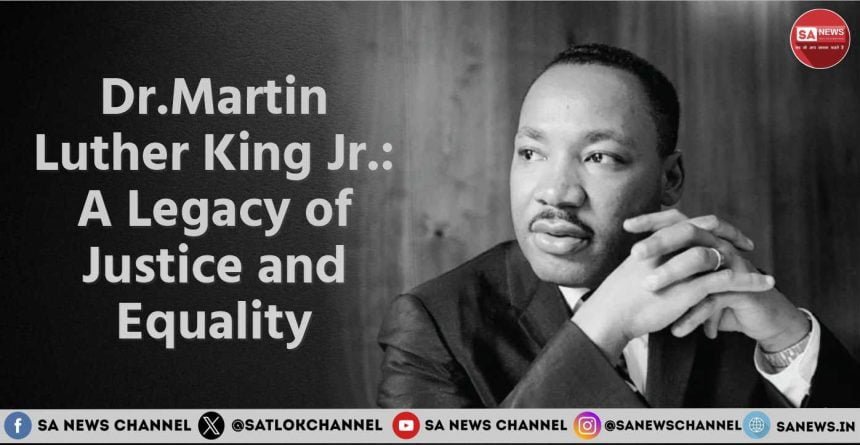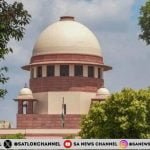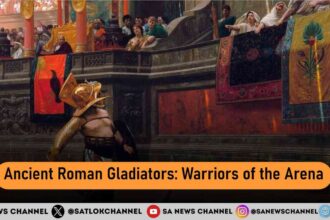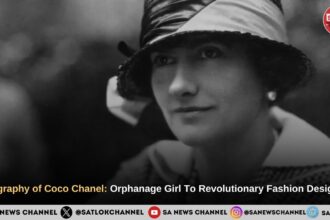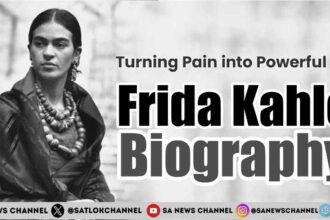“If you can’t fly, then run, if you can’t run, then walk, and if you can’t walk, then crawl, but whatever you do, you have to keep moving forward.” These powerful words from Martin Luther King Jr. remind us that no matter life’s challenges, we must press on. Today, let’s explore the inspiring life of Dr. Martin Luther King Jr., often called America’s Gandhi, and see how his journey shaped history.
- Martin Luther King Jr : Key Highlights
- From Humble Beginnings to History Maker
- Education: The Foundation of a Dream
- Standing Tall Against Injustice
- A Bus Ride That Changed History
- Walking in Gandhi’s Footsteps
- The Rocky Road to Freedom
- A Legacy of Honor
- A Light Extinguished Too Soon
- Words That Still Inspire
- A Vision for Global Unity: Beyond Dreams to Reality?
- FAQs
- 1. What was Martin Luther King Jr.’s original first name?
- 2. Which college did Martin Luther King Jr. attend at the age of 15?
- 3. What was King’s doctoral dissertation about?
- 4. Which organization did King co-found in 1957?
- 5. Where did Martin Luther King Jr. give his last speech?
- 6. What was the title of Martin Luther King Jr.’s first book?
- 7. What award did King receive from the NAACP in 1957?
- 8. Which U.S. president signed the bill to establish Martin Luther King Jr. Day?
- 9. Which musical genre was Martin Luther King Jr. particularly fond of?
- 10. What was the focus of King’s “Letter from Birmingham Jail”?
- Connect With Us on the Following Social Media Platforms
Martin Luther King Jr : Key Highlights
- Born in 1929 in Atlanta, Georgia to a Baptist pastor father and schoolteacher mother
- Earned degrees from Morehouse College, Crozer Theological Seminary, and Boston University
- Became a civil rights leader, fighting against racial discrimination in America
- Led the Montgomery Bus Boycott in 1955, lasting 381 days
- Adopted Gandhi’s principles of non-violence and truth in his activism
- Delivered the famous “I Have a Dream” speech during the 1963 March on Washington
- Named Time magazine’s Man of the Year in 1963
- Awarded the Nobel Peace Prize in 1964 at age 35, the youngest recipient at that time
- Assassinated on April 4, 1968, in Memphis, Tennessee at age 39
- Posthumously awarded the Presidential Medal of Freedom in 1977, leaving a lasting legacy of equality and justice
From Humble Beginnings to History Maker
Born on January 15, 1929, in Atlanta, Georgia, Martin Luther King Jr. came from a family dedicated to faith and social action. His father, Martin Luther King Sr., led a Baptist congregation, while his mother, Alberta Williams King, taught school. This upbringing laid the foundation for King’s future as a leader.
Education: The Foundation of a Dream
King’s academic journey was impressive. After graduating from Young High School, he earned a bachelor’s degree in sociology from Morehouse College in 1948. His pursuit of knowledge continued at Crozer Theological Seminary, where he received another bachelor’s degree in 1951. In 1955, King completed his formal education with a Ph.D. in theology from Boston University.
Standing Tall Against Injustice
Dr. King wore many hats – pastor, activist, and visionary leader who reshaped America’s landscape. He bravely spoke out against the discrimination faced by African Americans. Following in Mahatma Gandhi‘s footsteps, King chose the path of truth and non-violence to combat racial injustice. His actions proved that the fight for equality resonates across the globe.
A Bus Ride That Changed History
In 1955, a pivotal moment occurred when a black woman was arrested for refusing to give up her bus seat to a white passenger in Montgomery. This incident ignited a fire in 26-year-old King. After a 381-day Satyagraha movement, segregation on buses was abolished. Thus began King’s transformative journey as a leader.
■ Also Read: Biography of Nelson Mandela: An Icon of Resilience and Justice
Walking in Gandhi’s Footsteps
In 1959, King traveled to India, further cementing his commitment to non-violent resistance. His aim wasn’t personal wealth or fame – he envisioned an America where all people were truly equal and treated as brothers. With time and persistence, his dream of a greater America began to take shape.
The Rocky Road to Freedom
The road to King’s dream America was paved with hardships. He faced fierce opposition, protests, and even imprisonment. Yet, his vision never wavered. A turning point came in 1963 with the successful March on Washington D.C., protesting segregation in schools and workplaces. Here, King delivered his iconic “I Have a Dream” speech, painting a picture of a united America that still inspires today.
A Legacy of Honor
King’s impact was recognized globally. In 1963, Time magazine named him Man of the Year. The following year, at just 35, he became the youngest person to receive the Nobel Peace Prize, a testament to his profound influence on the world stage.
A Light Extinguished Too Soon
The author of powerful books like “Stride toward Freedom” and “Why we can’t wait,” King’s life was cut tragically short. On April 4, 1968, while standing on a hotel balcony, he was assassinated – echoing the fate of Mahatma Gandhi. At only 39, America lost a visionary who had given the nation new dreams. His legacy was further honored in 1977 with the posthumous Presidential Medal of Freedom.
Words That Still Inspire
- “No one can ride on you unless your back is bent, so straighten your back and work towards your goal.”
- “We shall overcome because the arc of the moral universe is long, but it bends toward justice.”
- “Darkness cannot drive out darkness, only light can do that. Hate cannot drive out hate, only love can do that.”
- “Make a career of humanity. Commit yourself to the noble struggle for equal rights. You will make a better person of yourself, a greater nation of your country, and a finer world to live in.”
Dr. King’s life serves as a powerful reminder that one person with unwavering dedication can indeed change the world. His dream of equality and justice continues to inspire generations, challenging us all to create a better, more inclusive society.
A Vision for Global Unity: Beyond Dreams to Reality?
While great leaders of the past envisioned a world free from discrimination, today’s changemakers aim even higher – uniting humanity as one global family. Could spiritual wisdom be the key to lasting world peace?
Saint Rampal Ji Maharaj offers a path to this lofty goal through social reform and inner transformation. His teachings have the power to dissolve boundaries and usher in an era of true harmony.
Curious to learn more about this bold vision for our shared future? Must visit our official YouTube Channel “Sant Rampal Ji Maharaj” or Explore our official website: www.jagatgururampalji.org
FAQs
1. What was Martin Luther King Jr.’s original first name?
Ans. Michael was Martin Luther King Jr.’s original first name.
2. Which college did Martin Luther King Jr. attend at the age of 15?
Ans. At the age of 15, Martin Luther King Jr. attended Morehouse College.
3. What was King’s doctoral dissertation about?
Ans. King’s doctoral dissertation was about A comparison of the conceptions of God in the thinking of Paul Tillich and Henry Nelson Wieman.
4. Which organization did King co-found in 1957?
Ans. King co-founded Southern Christian Leadership Conference (SCLC) in 1957.
5. Where did Martin Luther King Jr. give his last speech?
Ans. Martin Luther King Jr. gave his last speech in Memphis, Tennessee.
6. What was the title of Martin Luther King Jr.’s first book?
Ans. “Stride Toward Freedom” was the title of Martin Luther King Jr.’s first book.
7. What award did King receive from the NAACP in 1957?
Ans. In 1957, Spingarn Medal was the award that King received from the NAACP.
8. Which U.S. president signed the bill to establish Martin Luther King Jr. Day?
Ans. Ronald Reagan, U.S. president signed the bill to establish Martin Luther King Jr. Day.
9. Which musical genre was Martin Luther King Jr. particularly fond of?
Ans. Martin Luther King Jr. particularly was fond of Gospel music.
10. What was the focus of King’s “Letter from Birmingham Jail”?
Ans. Civil disobedience and the need for nonviolent protest was the focus of King’s “Letter from Birmingham Jail”.


